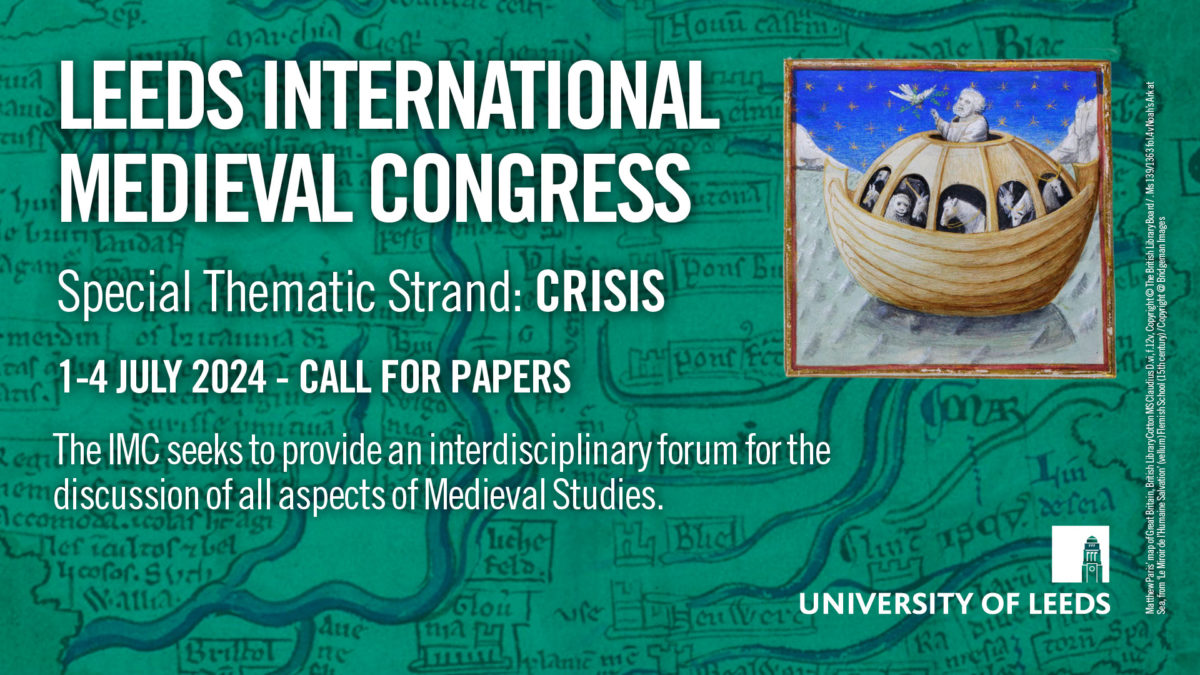
LEEDS International Medieval Conference 2024: Crisis (1-4 July 2024)
Abstract Submission Deadline: September 20, 2023
Two Sessions Proposed:
Digital humanities research projects have significantly transformed the landscape of scholarly inquiry, enabling new avenues for exploration, analysis, and understanding of human culture, history, and society. However, the rapid advancement of technology, coupled with challenges related to sustainability and preservation, presents a pressing crisis for the future of these projects.
Session I: CRISIS IN DIGITAL HUMANITIES RESEARCH: The Transformation of Academic Research Libraries’ Role in Digital Research Projects
Session II: CRISIS IN DIGITAL HUMANITIES RESEARCH: International Collaboration for the Sustainability of Digital Research Projects – It is Needed – But is it Feasible? What Next?
*******
Session I: CRISIS IN DIGITAL HUMANITIES RESEARCH: The Transformation of Academic Research Libraries’ Role in Digital Research Projects
This session examines the current ‘lay of the land’ and the current status of the magnus shift that has occurred in the area of support from academic research libraries for digital humanities research projects. In recent decades several major academic libraries have reframed their earlier supportive role, leaving researchers unprepared for the next steps. Possible paper topics may include:
- Case studies documenting experiences and shifts in academic communities.
- Current options or trends within academic research communities that have either replaced libraries’ support for digital research projects or developed other options to support digital research projects.
- Historical overviews of the role of academic libraries and why there has been this magnus shift – why has this happened?
- What are the ramifications of this shift to not just researchers but academic research libraries?
- What are the most viable and long-term support initiatives today for digital humanities researchers in Medieval Studies within academic communities?
- An examination of the growing gap that between academic programs and courses dedicated to the digital humanities and the actual support for digital humanities researchers.
Session II: CRISIS IN DIGITAL HUMANITIES RESEARCH: International Collaboration for the Sustainability of Digital Research Projects – It is Needed – But is it Feasible? What Next?
This session examines community, national and international possibilities to collaborate with medievalists working with digital humanities research projects to ensure the longevity of long-standing research projects. Possible paper topics may include:
- Visionary views of international collaboration
- Uniting digital researchers working in the Middle Ages? Do we need an association to address specific issues facing long-standing projects? Who do medievalists collectively need to do?
- New ways of approaching the problems of sustainability and longevity of specialized areas of digital humanities research
- Linked Open Data, the challenges and advantages when collaborating – who is doing what? What vocabularies are being utilized by medievalists in LOD?
- Information about the EU consortia seeking to address the current crisis in digital humanities research – who is doing what? Is it possible for North American and EU institutions to collaborate to address this crisis? What are the challenges for Medievalists?
The deadline for submitting a 250 word abstract for a 20-min in-person presentation, with a CV, to Harriet Sonne de Torrens, harriet.sonne@utoronto.ca is September 20, 2023.